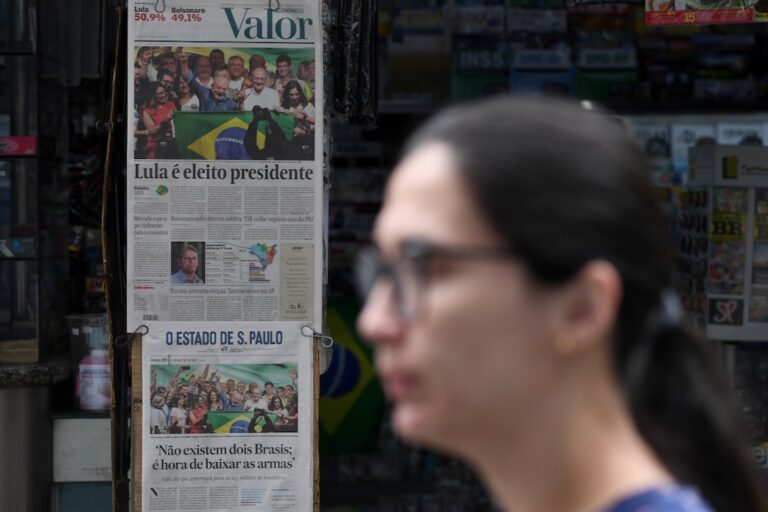The report reveals that while the media environment in the globalised metropolises appears increasingly healthy, journalists working outside the centres of federal power continue to be targeted by drug cartels, powerful local politicians, and others who fear the consequences of investigative reporting.
(IPI/IFEX) – VIENNA, March 22, 2012 – Brazil is booming. Latin America’s largest and most populous nation recently surpassed the United Kingdom to become the world’s sixth-largest economy – and is projected to move up one more spot by the end of 2012.
Oil production has skyrocketed, while poverty has hit historic lows. The country will host both the 2014 World Cup and the 2016 Summer Olympics. And the “B” in the powerful BRIC group of developing nations is lobbying for a permanent seat on the United Nations Security Council.
But as the world celebrates Brazil’s indisputable rise, a growing tide of violence against journalists working in the country’s vast interior and border regions – where the effects of rapid development and democratisation have yet to be fully felt – is going largely unnoticed.
While the deterioration of press freedom in Mexico and Ecuador has dominated headlines of late, Brazil witnessed the murders of 5 journalists in 2011, its highest total since IPI began its Death Watch in 1997 and equal to the previous three years combined. All but one of those killings occurred outside major urban areas.
The troubling trend has continued into 2012. Last month, Mário Randolfo Marques Lopes, an editor in the interior of Rio de Janeiro state, was kidnapped and executed along with his girlfriend. Just five days later, motorcycle-bound gunmen killed journalist and newspaper owner Paulo Rocaro in a small town along the volatile Paraguayan border in Mato Grosso do Sul.
The deaths of Lopes and Rocaro, both of which occurred in cities with a population of less than 100,000, are illustrative of the current press freedom situation in Brazil: while the media environment in the country’s globalised metropolises appears increasingly healthy, journalists working outside the centres of federal power continue to be targeted by drug cartels, powerful local politicians, and others who fear the consequences of investigative reporting.


